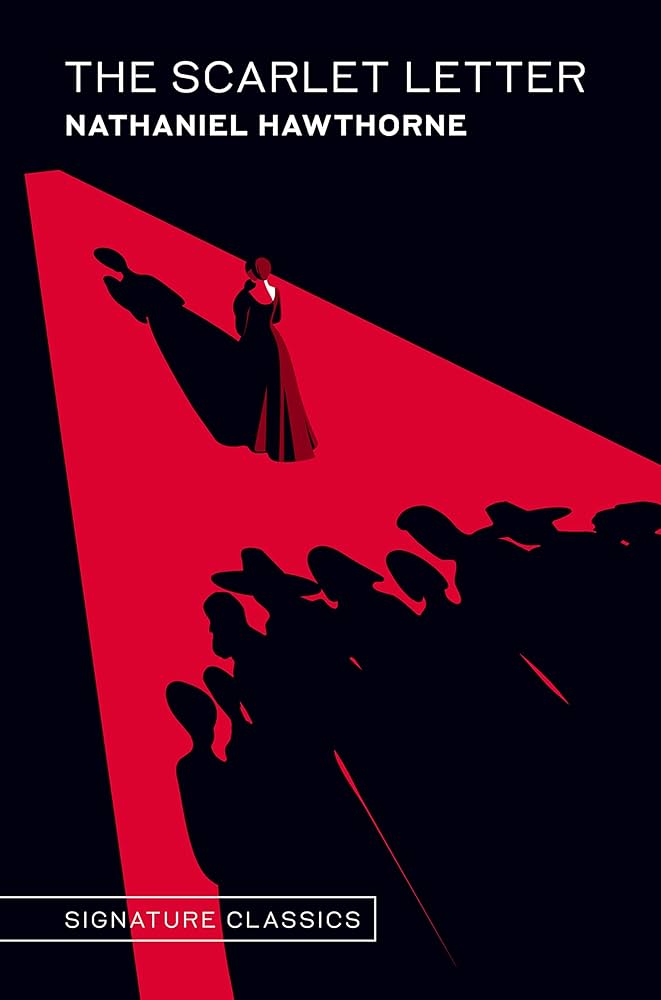As English teacher Janice Miller stepped into the English department’s bookroom, the lights flickered on, illuminating the ceiling-to-floor stacks of books that have accumulated over the years. “It’s almost like a museum,” said Miller. “It captures great writing and great work, but what that means might change over time,” she added.
At North, Books chosen for the English curriculum often evolve to suit the diverse student population, their interests, and current events.
“We try to balance rigor and something meaningful and appealing to the students,” said Miller.
One way the English department appeals to students is by trying to make them feel represented.
According to English teacher and assistant English department head Danielle Johnson, they are “very intentional about making sure that readings with experiences from various racial backgrounds, ethnic backgrounds, and gender backgrounds occur at multiple points over the course, especially of ninth through 11th.”
However, according to Johnson, the English department has had to drop books from their list of core texts—books taught in every English class within a particular grade—as a result of controversies, complaints from students, and changes in what words or attitudes are considered acceptable. Since then, the inclusion or exclusion of those texts has been left open to individual teachers. No books have been banned at North, meaning that teachers and students are still able to read and access books such as The Scarlet Letter and The Handmaid’s Tale even though they are not required to read them anymore.
Many teachers at North have removed The Absolutely True Diary of a Part-Time Indian from their syllabi. The book had been taught for many years, even after sexual harassment allegations came out surrounding its author, Sherman Alexie.
“He is a fabulous writer, and about ten years ago, at any high school in America, you would see Alexie’s work,” said Miller. “The problem was that he was the only native voice anyone saw,” she added. Schools nationwide dropped Alexie’s book from their curriculums because of the author’s actions. “As a part of the “Me Too” movement, many young Native American writers stood up about Alexie using his power for sexual advances,” added Miller. Notably, according to NPR, Alexie issued a statement in 2018 admitting to some of the allegations.
Due to the wide range of emotions and opinions, the book can spur, teachers have deliberated over how to address the book with students and whether or not to include it in their syllabi.
“What I would do in my class is name the issue, ‘this author has been accused of the following behaviors,’” said English teacher Michael Fieleke.
According to Miller, when the news was first released about Alexie, “in classes, teachers would highlight the controversy and ask students to choose.” However, after further reflection and discussion by all of the teachers in the English department, Miller said that teachers are choosing to replace The Diary of the Part-Time Indian with works from other Native American authors. “I think for me, for example, the controversy of the book made it very hard to use,” she added.
At the same time, some teachers feel that it is essential for students to read books that can be uncomfortable. “It turns out that within that particular book, there are also moments where the characters do some questionable things,” said Fieleke. However, according to Fieleke, he still believes it may still be okay to read the book in class “as long as we shine the light on those moments with our classes and explore them and the meaning of them together and don’t shy away from the topics that are important to be aware of,” he added.
Similarly, a book that some teachers have recently leaned away from is The Curious Incident of the Dog in the Nighttime by Mark Haddon. In the book, the narrator, Christopher John Francis Boone, who has mild autism, sets out on an investigation around the seemingly violent death of his neighbor’s poodle but then reveals aspects of his parents’ complicated relationship, including their affairs. The book ceased to be taught in classrooms across the nation in recent years due to the inclusion of profanity, stereotypes around autism, and religious references.
“I have had zero conversations with parents and no complaints about the text. But what we do have to think about regarding The Curious Incident is that we are always trying to expand our narratives, not have a single narrative, and reflect students who are differently abled,” said English department head Melissa Dilworth.
North’s English department’s decision-making system emphasizes collaboration, allowing teachers to continually bring in new texts and peer review each other’s choices before introducing them to the students. “The process starts with a teacher or team proposal,” said Johnson. “We all work together in teams of the grade levels we teach or the courses we teach. We work together to add things to the curriculum, take things out of the curriculum, and when we find new books that we want to include, we make a proposal to our department chair,” she added.
One example of the internal conversations that take place regarding works in the curriculum is the discussion around the Adventures of Huckleberry Finn by Mark Twain. “During our own reflection on the narratives and the fact that the perspective is from a white author about enslaved people, we decided that there were better choices,” said Dilworth.
As to the considerations that have to be factored in, according to Dilworth, North’s English department wants “all of our students to see themselves in the curriculum. And also for students to look at experiences and perspectives that are very different from their own in order to help students become a global citizen.”
One book in particular that stood out to students and expanded their perspectives was The Hate You Give by Angie Thomas. “It definitely gave me perspective of people’s lives and the things that they go through because I live in a neighborhood where I don’t have to worry about those experiences,” said Junior Ling Silverstein. However, this book also calls into question the need to balance student interest and the difficulty level of the literature.
Though the concepts discussed in The Hate You Give are mature and profound, the actual text itself is considered to be best suited for the 7th and 8th-grade reading levels. Therefore The Hate You Give may not force every student to become better readers in the same way a novel with a higher reading level would.
Another student favorite is Poet X by Elizabeth Acevedo. “It takes a lot for me to love a book but I thought Poet X allowed me to see a lot of different experiences,” said Junior Lila Anapolle. Additionally, Poet X varies in style from a lot of the other texts taught as its plot features poetry and is written in a series of short poems.
Even with the ever-shifting English curriculum, “there are a couple of core texts in each grade that all classes read,” said Miller.
One of them was Romeo and Juliet for the ninth grade. “Part of being educated is experiencing what we formally called the classics,” said Fieleke. “There’s beauty in them, there’s power, there’s meaning, there’s depth, they have been around for hundreds of years for a reason. But also obviously there are people of genius and brilliance who are not dead white men,” he added.
Walking around the book room, Miller pulled out a couple of books from the shelf as past examples of works that have been dropped from the core texts requirements.
Miller elaborated further on the importance of taking into account the students’ interests when deciding which books to include. “Scarlett Letter has so much scholarship in it and has such an iconic role in American literature. But even though teachers assigned it, students would not always read it,” said Miller. You might have two kids in a class that love it,” she added.
When deciding whether to include or exclude a book from the curriculum, the department judges it as a part of a student’s four-year trajectory rather than as a singular book. “When I first started here, 14 years ago, we did a curriculum audit. We looked at all the books we had, what perspectives, experiences, time periods, and genres. Then, we looked at our student body breakdown and the demographics,” said Dilworth. “When we put those two things together we all agree that we weren’t doing enough despite our efforts,” she added.
However, this challenge partially exists due to the nature of the publishing industry. “The publishing industry is run predominantly through a single perspective,” said Dilworth. Even when we look at text by diverse authors, it’s disproportionately authors who are white and male who tend to get their books published,” said Dilworth.
Furthermore, even when students do come across the works of female authors and those of color, they seem to be centered around the same themes. “They are put into a box,” said Dilworth. The select stories within authors of color’s catalogs focusing on admittedly relevant issues to their identity are read in classrooms disproportionately more than authors of color’s other books. “So slavery, we have a million books on that, or you know we have more and more Y.A. books around police brutality, but those are the books that sort of tend to get published,” added Dilworth.
While many students would agree that the English curriculum is well diversified, some would say that the focus on an author’s background or identity takes away from being able to appreciate the quality of the work itself.
“I think the inclusion of unrepresented authors is important and I understand that they want to make students aware of that by spending time analyzing the author’s identity, but the overemphasis almost has an opposite effect,” said Junior Lauren Cao.
Not only are many books unable to be published and shared with the world, but even once they are, schools nationwide are implementing curriculum restrictions and book bans. “I think, as an English teacher, of course, banning is horrible,” said Miller. “I also think it’s misguided because they’re trying to remove voices from the curriculum when often the people who want to ban a book aren’t very familiar with it,” she added.
Furthermore, book banning risks defeating the very purpose of education. “I think that what I see as our role in high school is to expose students to different ideas and perspectives, not to try to teach people what to believe. But if we are limiting what people get to read, then we’re taking topics off the table,” said Fieleke.
In particular, Miller mentioned the book Maus as an example of a book that was banned in certain school districts for various illegitimate reasons over the past two years.
“Some people think that they want a ban to hide from unsettling truths,” said Miller. All of North’s AP Language classes, two of which Miller teaches, read The Killers of the Flower Moon by David Graham. However, according to Miller, “Oklahoma has a recent law that says you can’t teach anything that will make the students feel ashamed and because it has to do with flaws in America, I’m not sure what is happening right now but teachers and librarians are being put in the position of asking, ‘is this book going to break the law?’”








































